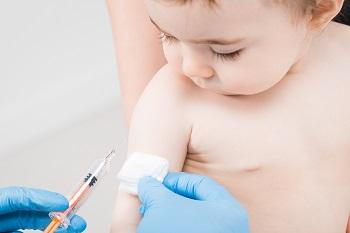The importance of immunizations
Childhood immunizations are one of the most important safeguards against communicable diseases and their serious, long-term complications. Your pediatrician closely adheres to the vaccination schedules published by the American Academy of Pediatrics (AAP) and the Centers for Disease Control and Prevention (CDC). Why? Well, there's nothing more important than your youngster's health and well-being, and immunizations effectively guard them.
Why? Well, there's nothing more important than your youngster's health and well-being, and immunizations effectively guard them.
Just what is an immunization?
Most immunizations are given as "shots," or injections, but some, such as the Rotavirus vaccine, are oral medications. However administered, vaccines boost your child's immune system in its battle against diseases which easily spread from person to person.
Each vaccine contains a small amount of a killed or weakened micro-organisms. These altered viruses or bacteria raise the body's defenses against a particular illness such as chicken pox. pneumonia, polio, tetanus, and more...up to 14 in all by time your child is two years old, says the CDC.
Are immunizations necessary?
Your pediatrician, his or her colleagues and decades of research prove that vaccines protect the health of individual children and of the community at large. Also called herd immunity, community immunity works best when as many babies and youngsters receive all their "shots" on schedule. Community immunity protects youngsters who cannot receive vaccines because of cancer treatment, HIV infection or other serious reason. It also shields the general population when people travel from countries which cannot provide access to these important medications.
Both the AAP and the CDC publish and recommend set vaccine schedules carried out at well-baby and well-child visits at the doctor's office. In addition, there is a "catch-up" schedule for children who have begun their immunizations late or had them interrupted by illness or other serious concern.
Your pediatrician's services
They're so important. Your child's doctor keeps your child's immunization records and can distribute them to schools, camps, college, sports, daycare and other organizations who require proof of up-to-date vaccines. The doctor also monitors your child for any adverse reactions, although typically, vaccines produce no more than:
- Localized redness and soreness at the injection site
- Low grade fever
- Pain and swelling
- Fussiness








